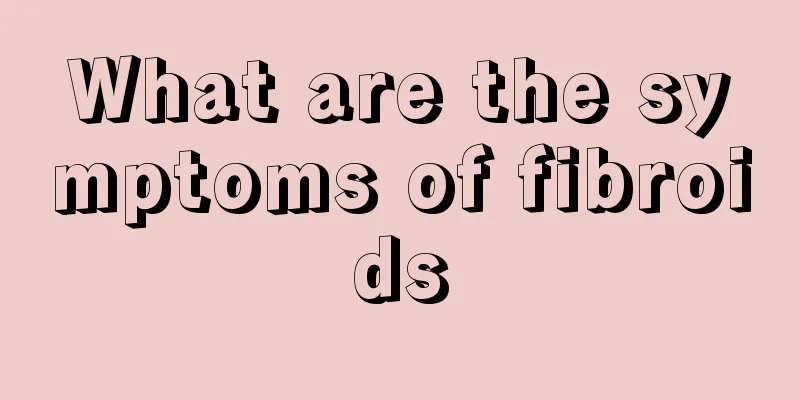What are the late symptoms of pituitary tumors

|
Some patients with pituitary tumors are not diagnosed until the late stages because their early symptoms are not obvious. In the late stages, it has a greater impact on the patient's life. It is necessary for everyone to understand some of its symptoms and go to the hospital for treatment in time when physical discomfort occurs. So, what are the late symptoms of pituitary tumors? Let's take a look. The main symptoms of late-stage pituitary tumors include: 1. Hormone changes: Various types of secretory adenomas can secrete excessive hormones, which can cause different symptoms of hyperendocrine hyperfunction in the early stages. Non-secreting adenomas can compress and destroy anterior pituitary cells, resulting in a decrease in troponin and corresponding target cell dysfunction, which can cause clinical symptoms of endocrine hypofunction. A few cases of endocrine adenomas can also cause hypopituitarism in the late stages of the disease. 2. Proximal symptoms: caused by the pituitary tumor growing outside the sella turcica and compressing adjacent structures. 3. Symptoms of optic nerve compression: The upward growth of the pituitary tumor can raise the diaphragm sellae or break through the diaphragm sellae to compress the optic nerve chiasm upward, causing changes in vision and visual field. 4. Headache: About 2/3 of patients with non-secretory pituitary tumors may have headaches, but they are not too serious. The tumor grows into the third ventricle and blocks the interventricular foramen, causing increased intracranial pressure, which can cause diffuse headaches. Sometimes intratumoral bleeding or tumor cyst rupture can cause acute and severe headaches. The general prevention methods for pituitary tumors are: 1. Psychological comfort: Pituitary tumors are benign tumors in the brain. Surgery is effective and you can return to normal work after recovery. 2. Improve nutrition, eat more fresh, high-protein foods, strengthen your physical fitness, and help your body recover soon after illness. 3. Radiotherapy usually lasts about one month after surgery. During radiotherapy, avoid going to public places, pay attention to nutrition, and measure blood counts regularly. 4. Take medication as prescribed by your doctor and have a CT scan once a year. Warm reminder: Don’t ignore the occurrence of pituitary tumors. This is a common disease. In daily life, many patients will experience headaches, which seriously affect the patient’s health. You need to pay attention to this situation to avoid compression of the optic nerve. If you have vision abnormalities, go to a relevant specialist hospital for treatment in time. |
<<: Can bile duct cancer be completely cured?
>>: Can bile duct cancer be cured
Recommend
Dry and flaky skin on arms
It is well known that if a person's skin lack...
What are the functions of riboflavin?
Riboflavin is an essential element for the human ...
Early symptom check for esophageal cancer
Esophageal cancer is a type of cancer that poses ...
Is it true that black tea can remove formaldehyde?
Tea is a daily necessity for many people. Without...
Will gallstones cause abdominal bloating?
Gallstones are a very common disease in daily lif...
Anxiety disorder physical pain
As people's work pressure increases, more and...
The ear itches, has water and smells bad, you need to know the reason
The ears are itchy and there is water and it smel...
What causes coughing up blood? Is it related to lung disease?
Many people cough up blood when they cough. There...
How to treat small cell lung cancer effectively
How to effectively treat small cell lung cancer? ...
How to deal with calluses on toe joints
I believe everyone has encountered the situation ...
Walking posture
In fact, brisk walking is a relatively good way o...
Only good treatment methods can effectively treat patients with colorectal cancer
In recent years, the incidence of colorectal canc...
What to wear when the temperature is between 11 and 22 degrees
In seasons with different temperatures, you shoul...
The stool is all water
There are many traditional festivals in China, an...
How long in advance should you wash newborn baby's clothes?
After a child is born, parents should provide the...









